The Weed Dictionary: Stoner Meaning Slang Explained
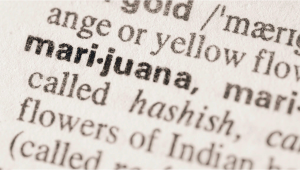
- 0. a. The meaning of 'slang'
- 1. Slang for saying 'marijuana' (the plant)
- 1. a. Weed, pot, and mary jane
- 1. b. Herb, hemp or ganja
- 1. c. Bud or buds, nug and flower
- 1. d. Hash and grass
- 1. e. Dope, skunk, and dunk
- 2. Nicknames for cannabis consumers
- 2. a. Stoner, pothead, toker
- 2. b. Junkie or burnout
- 2. c. Ent
- 2. d. Growers and florists
- 3. Terms that refer to the consumption effects
- 3. a. High, stoned, baked or blazed
- 3. b. Couch-locked, fried, blitzed, ripped, and more
- 4. Cottonmouth, munchies, and other side effects
- 4. a. Munchies
- 5. Synonyms related to the act of smoking
- 5. a. Sesh, hotboxing and clam baking
- 5. b. Burn one and 4:20
- 5. c. Chiefing or being a bogart
- 6. Ways of calling a marijuana cigarette
- 6. a. Joint, spliff, pinner, and king-size
- 6. b. Roaches and snipes
- 7. The history of the cannabis counterculture movement
- 8. The bottom line
Being a new member of the marijuana consumers community means entering a world of rituals and slang words that you were completely unaware of. And as a newbie stoner, you likely found yourself feeling confused several times already when hearing some terms which sounded completely random to you. Don't worry, most of us have been there, and it only takes some time until all of these words start flowing through you, it's all about practice, wink-wink.
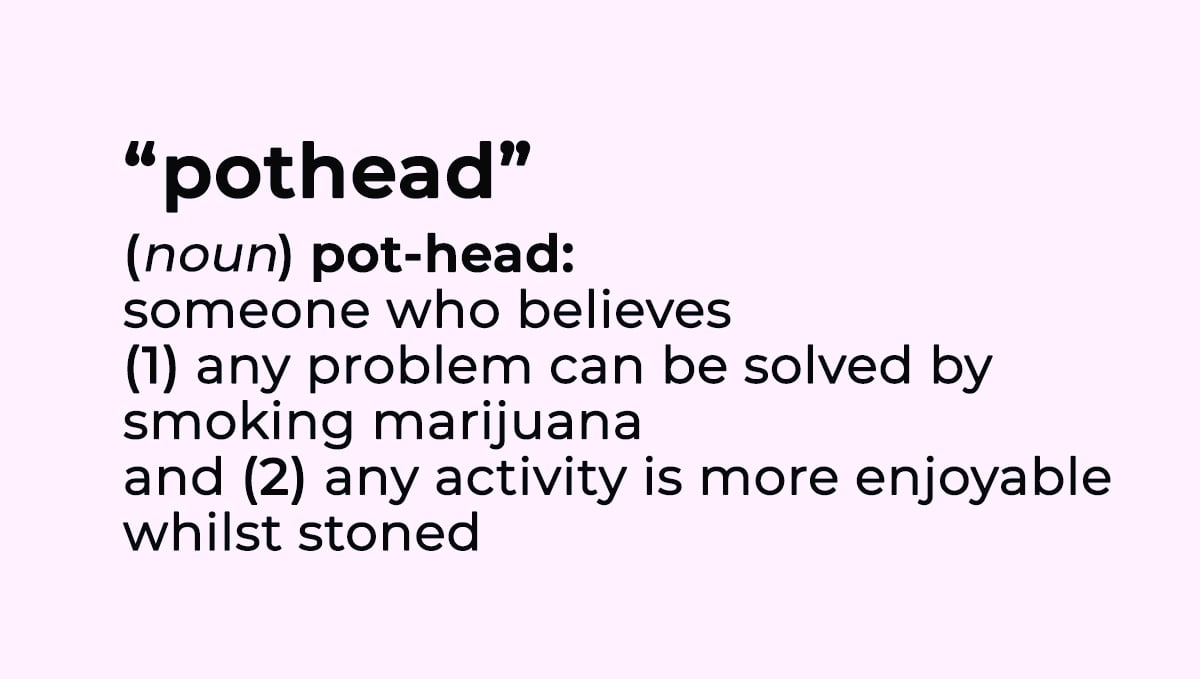
Besides, once you finally adapt as a true stoner, these metaphors will only make sense, and who says you can't come up with your own terminology as well? Most stoners are almost like poets when it comes to slang creation. As with most sub-cultures, canna culture comes with a huge variety of terms that are wide-ranging and pretty downright creative in some cases. A lot of the words and phrases are used worldwide, while others are much more regionally based. And sure, while it may seem like a big, new, daunting world to the novice stoners among us, the vast majority of these terms have already been firmly cemented into the current lexicon thanks to the growing acceptance of cannabis by mass media, and also the wider community.
The Meaning of 'Slang'
Did you know that some people believe that the word 'slang' comes from 'street-language'? So what we'll be learning today is exactly that, the informal terminology in the world of cannabis.
This weed dictionary includes references to cultural and consumption slang, and some extra specific terms and phrases. Some of the most common expressions in the cannabis world include:
- Stoner, which is a frequent user;
- Joint, a rolled marijuana cigarette;
- Munchies, the starving side effect of weed;
- And cottonmouth, another dry mouth side effect of marijuana.
Let's start with our stoners' linguistics lesson.
1. Slang for Saying 'Marijuana' (The Plant)
When it comes to marijuana, new words and terms are constantly coming up, the main reason why is because once authorities become aware of some of the slang words, this claims for new ones.
“The terminology doesn’t really emphasize illegality: It is the illegality that created the need for the terminology,” -Jonathon Green, slang lexicographer. 1
According to Green, drugs are one of slang’s 'best sellers' because slang and things-you’re-not-supposed-to-mention-in-polite-society go hand in hand. So let's get started with the most common alternative ways of saying marijuana or cannabis.
Weed, Pot, and Mary Jane
Well, we all know these ones probably. People started calling cannabis 'weed' because the plant grows like weed, it sprouts up anywhere that's moist and warm, just like other common weeds. Mary Jane is a term that dates back to the same times where 420 originated, it's a word game that plays with the Spanish pronunciation marijuana, which sounds a lot like Maria Juana, a.k.a. Mary Jane.
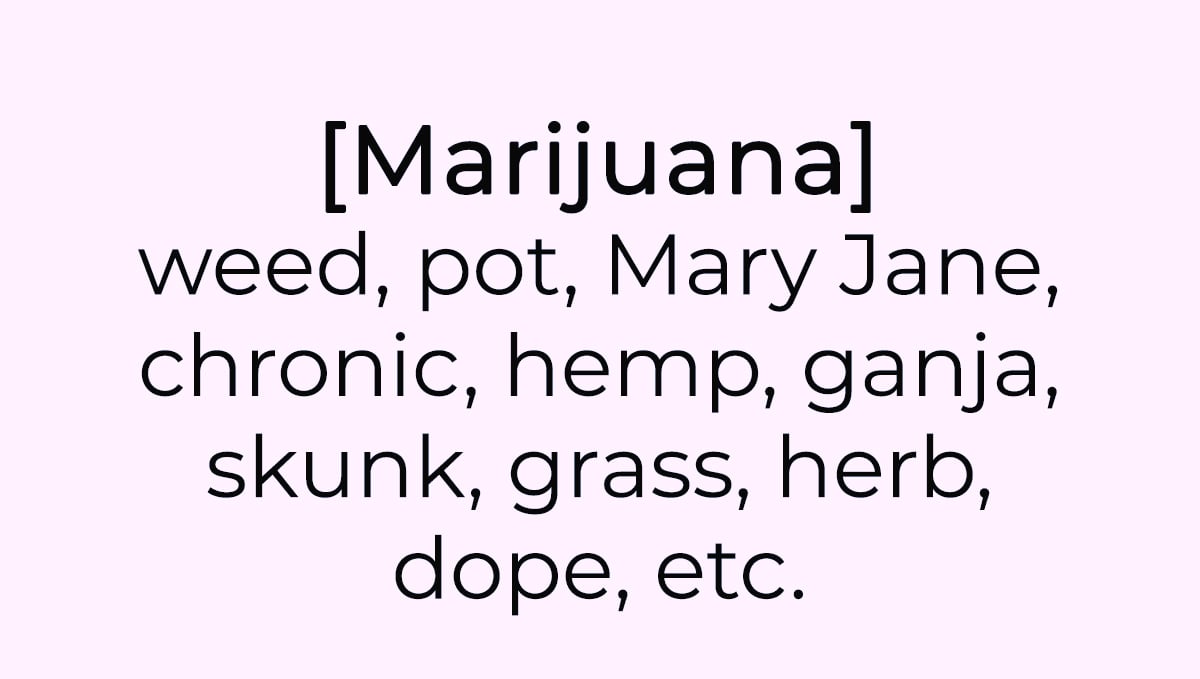
Herb, Hemp or Ganja
These terms are most likely emphasizing the botanical aspect of marijuana. In Hindi, the literal translation of marijuana is ganja as well.
Bud or Buds, Nug and Flower
Bud is the number one word you should always remember. It is a term used to refer to the flower of the plant, once harvested, cured, and ready for consumption. Another common way of calling the plant's flowers is nug, which is normally used to refer to the premium-quality buds of the plant.
Hash and Grass
Hash and grass, most commonly found in german-speaking countries, Germany and Austria, is a term that was used to say marijuana back in the 1970s in the US as well.
Dope, Skunk, and Dunk
We hear dope mostly on rap songs, however, this synonym comes from Ireland, where they use this term to refer to cannabis on a daily basis. 'Skunk' is also a common term used in the northern parts of the UK, like Scotland and Northern Ireland. 'Dunk' is normally used to refer to premium quality cannabis. The list of slang words for the MJ really is never-ending, but some of our personal favorites not already covered include:
- Astro turf
- Satans Spinach
- The Devils Lettuce
- Cheeba
- Yarndi
- Jolly Green
- Wacky Tobacky
- Mary’s Green
- Stank Weed
- Sinners Kale
- The Big Mans Alfalfa
2. Nicknames for Cannabis Consumers
Going around calling each other consumers doesn't sound quite familiar or friendly, does it? Luckily there's a whole variety of words we can use to identify ourselves as marijuana users.
Stoner, Pothead, Toker
These make the most common words for describing people who enjoy smoking substantial amounts of weed, or who like to do it with frequency.
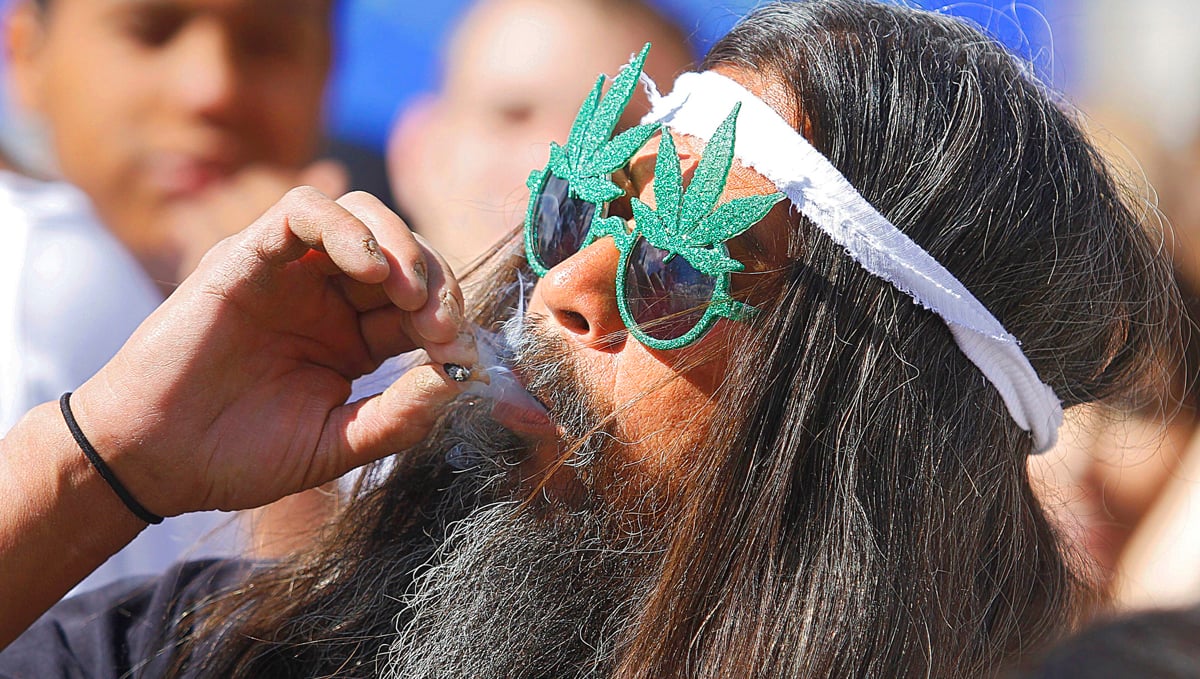
Junkie or Burnout
Junkie and burnout are usually terms that describe the kind of stoners who consume a lot of marijuana. Burnout specifically refers to those who are in a constant state of unfocus and dullness, who look like they are in slow motion, i.e. Leo from That 70s Show or The Dude from The Big Lebowski.
Ent
This one is more of a nerdy term for calling stoners and it was taken from The Lord of the Rings. Ents are living trees, and the use of “trees” as slang for cannabis was probably led by nerdy stoners who made the connection.
Growers and Florists
People who cultivate any sort of plants are growers, and so do cannabis farmers, makes sense. However, some romantics prefer referring to themselves as florists instead.
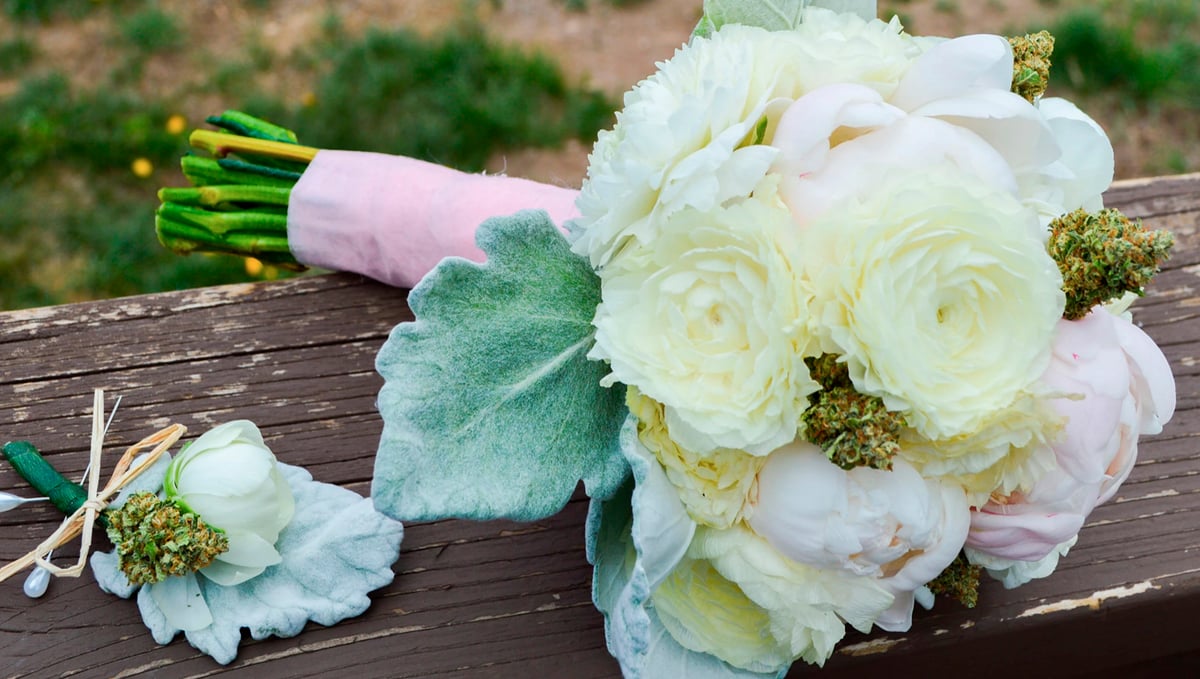
In fact, there are actual weed florists who work fixing gorgeous buds bouquets for lucky ladies.
3. Terms That Refer to the Consumption Effects
When it comes to ways of making reference to the effects cannabis has on us users, the list can go on and on. Here are some of the most common descriptions of cannabis' effects.
High, Stoned, Baked or Blazed
The term high is practically known all around the globe, or at least in countries where there's a big English language influence. Another common way of saying someone is high on marijuana's effects is stoned which comes from the 1940s, and it evoked the idea of being knocked unconscious with stones. However, and to our luck, smoking weed isn't half as violent and aggressive as that sounds.
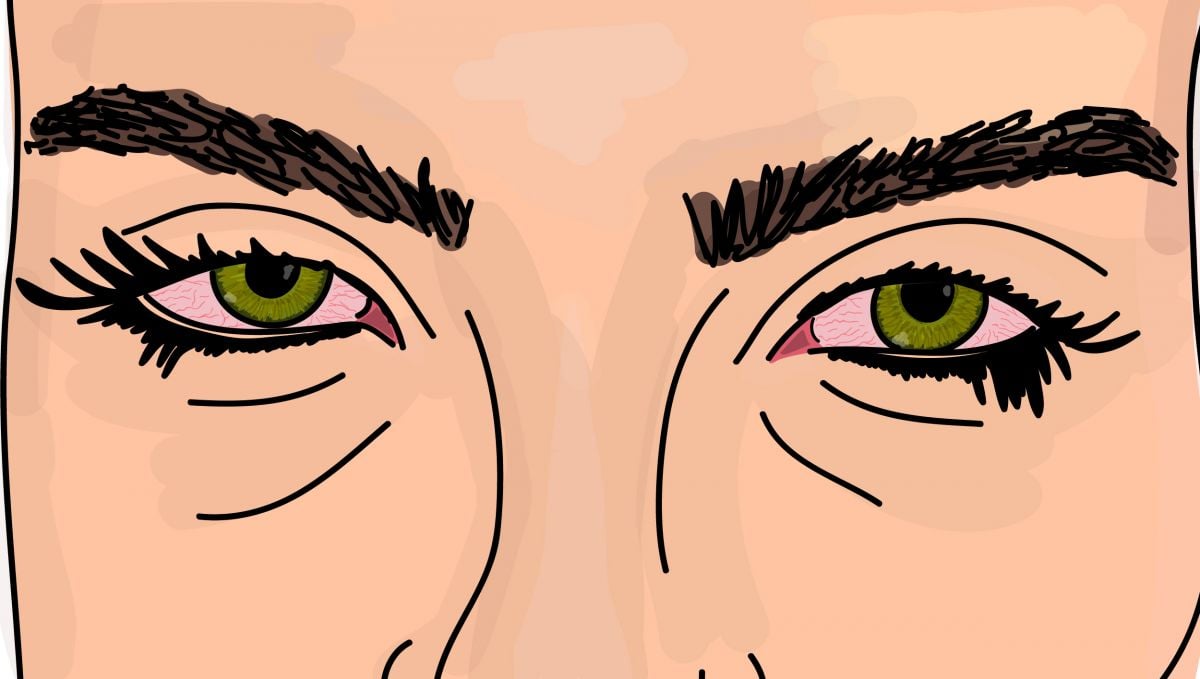
Baked and blazed are usual words to describe the fuzzy feeling after smoking a joint. They tend to make reference to the classic puffy-eyed, giggly, slow, and relaxed state of mind.
Another synonym for baked is cooked, which was probably the creation of another stoner starting to get the munchies, which we'll proceed to explain later.
Couch-Locked, Fried, Blitzed, Ripped, and More
Have you ever smoked a joint that got you so high that you couldn't even move, or get up from the couch. Well, some smart stoner thought of the term couch-locked to describe that exact feeling.

However, there is an infinite list of ways to express that you're simply extremely high, such as being blitzed, bouldered, ripped, wrecked, and our personal favorite, fried. Lastly, crossfaded is a term used for someone who has mixed alcohol and cannabis, being high and drunk at the same time. Though fun as it may sound, please keep in mind to intoxicate yourself with safety!
4. Cottonmouth, Munchies, and Other Side Effects
If you've ever smoked some mary jane, which we can assume you have, you are probably aware of the side effects that come along with its consumption.

Besides from getting giggly, you probably noticed your puffy-red eyes, and the classic cottonmouth, which is a way to describe the dry mouth feeling. Keep a bottle of water close to you, you'll need it.
Munchies
We all know that smoking weed activates more than ever the inner starving gorilla in our stomachs. And the funniest part is there is no discretion when it comes to munchies, once you start eating it's really hard to stop.

Sweets to salty, back to sweets, and all over again? Sounds familiar. Generally speaking, the most common effects after smoking a joint are:
| Eyes | Reddening; decreased intra-ocular pressure |
|---|---|
| Mouth | Dryness; enhanced flavor |
| Skin | Cold or hot sensation |
| Heart | Increased heart-rate |
| Muscles | Relaxation |
5. Synonyms Related to the Act of Smoking
Whenever a stoner calls over another toker for a smoke, odds are they will never even use the word 'smoke', given we have a vast variety of phrases to use that sound, well, much cooler.
Sesh, Hotboxing and Clam Baking
A sesh, which is short for session, is simply an encounter over a joint, blunt, spliff or whatever shape of marijuana consumption.

The act of burning one in an enclosed and small room, like a bathroom or perhaps a car, is called hotboxing or clam baking. It is a popular belief that hotboxing gets you higher because once the room is filled with smoke, every breath you take in theory gets you higher.
Burn One and 4:20
Some highly frequent terms to use are burn one or light up which practically explain themselves. Another one is 420, the number that represents the stoner culture, which is also another great call for smoking.
"Hey man, come on over, it's 4:20" even when the time isn't really 4:20, it's just a code that has been used for smoking weed for decades.
Chiefing or Being a Bogart
When a person is keeping the joint to themselves in a group smoke circle this person will be called a Bogart, which is associated with the actor Humphrey Bogart who is always holding a cigarette in his mouth in many of his films. Another common way of referring to this situation is chiefing, which means someone is hogging the weed or taking huge rips instead of sharing. The term was inspired by Native American chiefs who smoked large, deep hits off their pipe. Depending on your location, you may also hear terms like:
- Going for a choof
- Getting baked
- Going on a natural holiday
- Puffing the dragon
- Torching up
- Burning one down
- Getting fried
- Going to space
- Flying the highlines
6. Ways of Calling a Marijuana Cigarette
If you ever hear anyone say the words marijuana and cigarette together make sure there's someone else witnessing because we can't think of the last time anyone who frequently consumes weed named it that way. When it comes to forms and nicknames there are infinite nouns, adjectives and metaphors for calling a joint.
Joint, Spliff, Pinner, and King-Size
A joint, or doobie, is the most common way of consuming weed, it consists of a rolling paper and a filter, or crutch, filled with cannabis inside. A spliff on the other hand, implies that the joint was rolled with a mix of tobacco inside.
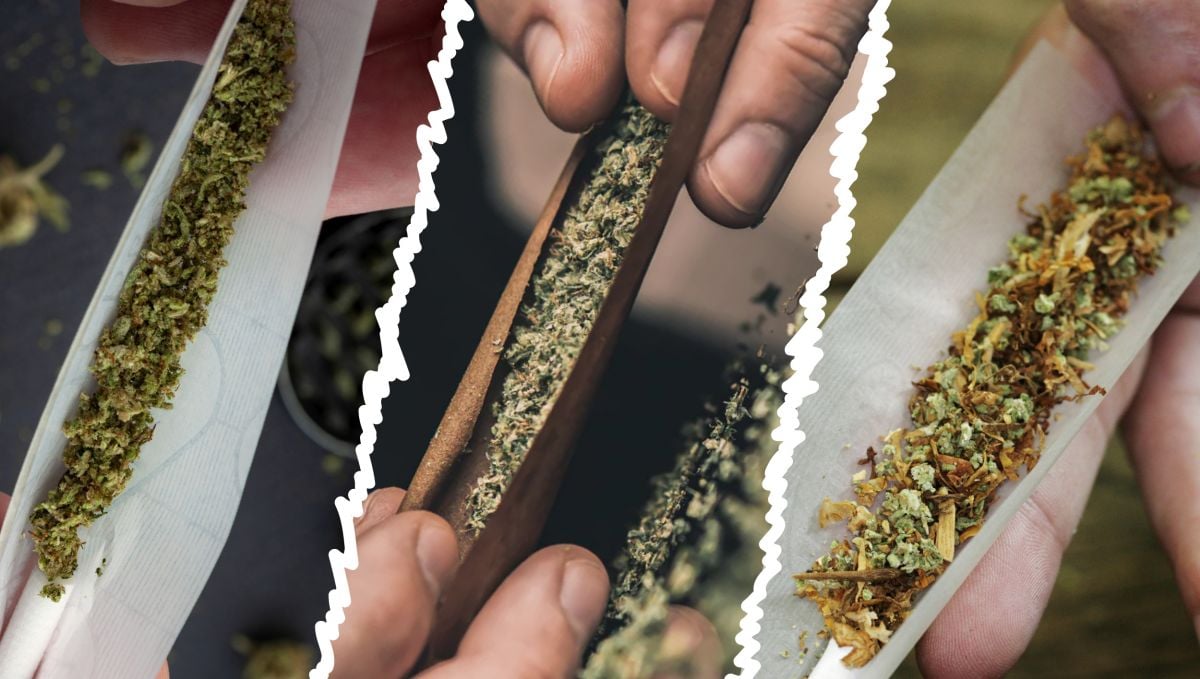
Pinners are intentionally small joints, rolled either for a solo smoker, a mild high, or to make your buds last longer. On the contrary, blunts or king sizes are bigger joints, the first one rolled with tobacco paper, that work great for group gatherings.Then there are terms like:
- Biffo, or bifta
- Baseball bat
- Doobie
- Jazz cigarette
- Torpedo
- Left-hander, or left-handed cigarette
- Pocket rocket
Roaches and Snipes
The roach, which is short for cockroach, is the tip of the joint, usually being strong-flavored given most of the resin is accumulated there.
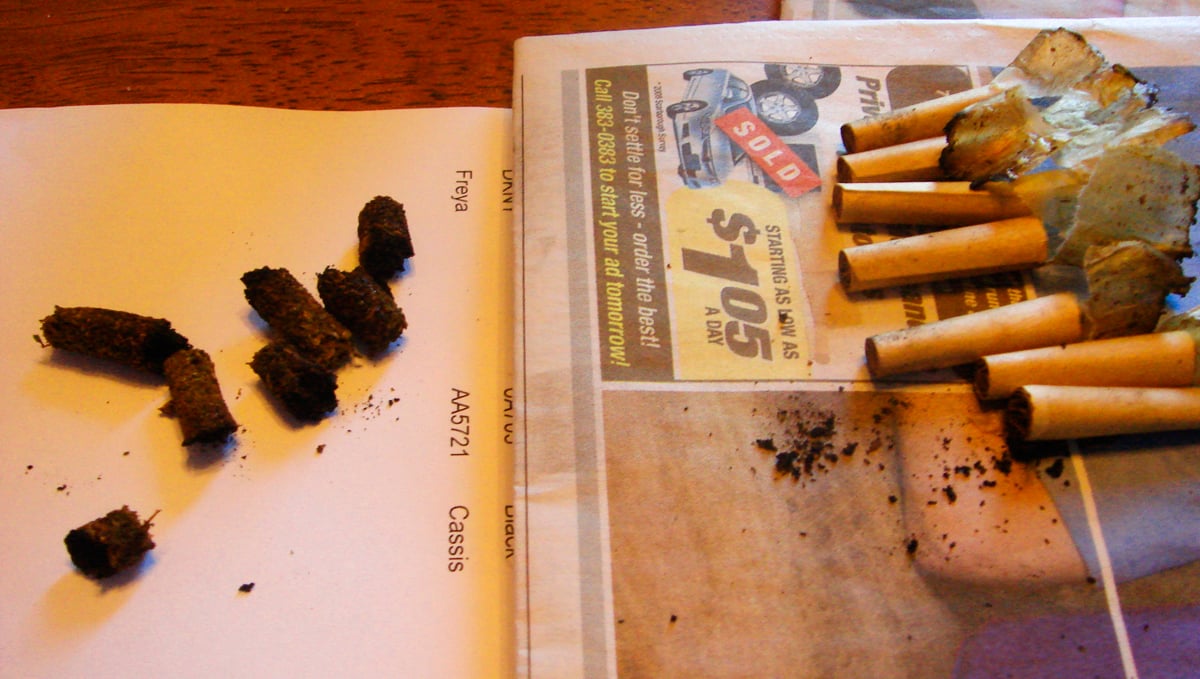
Some stoners keep these roaches to either smoke them in times of drought or to build the famous snipe or generation joint. These terms refer to the joint that is made of all the leftover contents in these kept roaches. According to some stoners, these joints can get you extremely high.
The Mainstream Term That is Slowly Being Phased Out
While we have been focusing on all the terms you may not have known so far, there is one that you have definitely heard before that is possibly on the way out. Marijuana, or marihuana, may seem pretty innocuous. It’s still used pretty much interchangeably with the Latin term Cannabis, with a bunch of states even using it as the legal term. But, did you know that the word marijuana is actually pretty controversial? In fact, an article published all the way back in 2013 poses the question “is the word marijuana racist?” Racist? Really? Well, actually, yes.
Back in the 1930s, at the very beginning of Harry Anslinger’s war on drugs, the Federal Bureau of Narcotics (which was the direct predecessor to today’s DEA) decided to use the term in place of the more scientific-sounding “Cannabis”. Simply put, the word “Marijuana” looks and sounds much more Mexican, especially to the Anglo population of the USA that Anslinger was trying to manipulate. This exotic term was used to make the drug itself seem much more dangerous and sinister than it is in reality.
In fact, before 1910, the word marijuana had never even been used in the USA mass media. This was in a time when cannabis was still being used in a widespread manner in a whole range of medicines. It was only after a huge wave of LEGAL immigration from Mexico (890.000 people immigrated between 1910 and 1920) that these racist connotations surrounding cannabis usage started to enter the public consciousness and with it the use of the term marijuana.
And while some people are thinking that enough time has passed for these racist roots to have been forgotten and the sting of the word has all but passed, words hold power that should not be understated. It is 2022 after all…
7. The History of the Cannabis Counterculture Movement
Alrighty then, there you have it friends. Pretty much every term that we use as stoners, and what they relate to. But where did all of this originate? What is the collective history of the cannabis counterculture movement? Let's dive into the long, chequered, and super interesting history of modern-day cannabis usage, and see where we end up! But first, a quick ancient history lesson of cannabis usage...
Cannabis and Humans in Prehistory
While we do have some recorded history of cannabis usage that reaches back millennia, it's safe to say that humans and weed have been intertwined for a long time. A very, very long time in fact.
You see, we (and many other mammals) have a system in our body that is specifically designed to interact with the compounds that are found in cannabis. This system is called the EndoCannabinoid System (ECS), and it's been estimated that it has existed in mammals for more than 500 million years. This in itself points to the fact that humans are hardwired to enjoy the effects of cannabis. But history really starts to pick up when we look at some ancient civilizations, where weed was being used for both medicinal and recreational purposes.
The First Recorded History of Cannabis Usage
The first recorded use of cannabis goes all the way back to 2,737 BC with the dawn of Chinese Emperor Shennong, who wrote the book "The Divine Farmer's Herb-Root Classic" and noted cannabis among the medicines he recommended. In the book, it was noted to be an effective plant medicine for many ailments, including gout, rheumatism, and malaria.
Fast-forward a few thousand years and we come to ancient India, where cannabis was widely used for spiritual ceremonies and celebrations. It was even mentioned in the Hindu religious text Atharva Veda (written around 1,400 BC) as a sacred plant that was connected to the gods and goddesses. We then come to ancient Egypt, where cannabis was used by many in a similar way as it was in India. In ancient Egypt, cannabis was used as an ingredient in both food and medicine, with its first mention found on a papyrus scroll dating back all the way back to 1,550 BC.
Finally, we have ancient Greece and Rome where cannabis was used mostly for its medicinal properties, but also for spiritual ceremonies and rituals. It was here that we see the first recorded usage of cannabis as a recreational drug, with many people partaking in its effects during parties and festivals.
From the Ancient World to Today
We could go on and on about the use of everyone's favorite plant in the old world, but what we are really here to talk about is the birth of the weed counterculture movement of the 1960s and beyond, and how that affected the vernacular of the public, worldwide (at least in English speaking countries). But to properly do so, we have to start in the late 1800s. You see, this was a volatile time, and one dominated by industrial monopolies - especially in the good old land of the free, and home of the brave. Hemp usage as an industrial product was on the rise, and this made certain people a little uncomfortable. Certain important people. Certain powerful people. The cotton industry to be precise, and one man in particular, William Randolph Hearst.
In a bid to protect his cotton empire, Hearst began a campaign of misinformation and propaganda against marijuana (as it was then known). This continued until the Marihuana Tax Act of 1937 which essentially criminalized the usage and possession of cannabis. Even the word marihuana was part of the spin, with connotations connected to that pesky place south of the border. By using this "foreign" sounding word, Hearst hoped to more easily turn the public view on weed into one of fear and suspicion.
And so, the war on weed began. It was quickly outlawed throughout the country, and the same happened elsewhere in the world. It wasn't until the 1960s that cannabis started to come back into public view with a true rebirth of sorts. To understand this, you have to also understand what the world was going through at the time. The post-WWII glow that had surrounded America was slowly wearing away, and the Vietnam war was in full swing. The public was starting to become more disillusioned, and they were searching for something different.
This is where weed comes in. With its spiritual properties, its connection to the counterculture of the time, and its ability to bring people together, it quickly became a symbol of rebellion against the establishment. No longer were the youth of the day happy to conform to the social norms forced onto them by the older generation, and so they embraced the marijuana movement (along with other mind-bending substances) with all true gusto. This, in turn, gave rise to all of the slang and terminology we hear today (or heard until recently). Terms like "pothead", "reefer", "Mary Jane", and a bunch more of the classics were born during the late 60s and early 70s, and this was only the beginning. With the legalization/decriminalization of marijuana in various states (and countries) in recent years, it's only gotten more popular and more mainstream - with an even wider variety of names, phrases, and slang evolving as a result.
But it's not just the vocabulary that's changing. Oh no, this true weed revolution is bringing with it an entirely new way of looking at things. From the medical sciences to everyday life, more and more people are beginning to accept cannabis as a part of our society, and that's a truly beautiful thing. And with that, we can only hope for the continued acceptance of the best plant in the whole wide world in our everyday lives. On that note, let's all take a moment to proudly puff out our chest and appreciate the fact that we live in a time where weed is becoming increasingly accepted. Cheers. Peace, Love, and Pot clouds - hell yeah!
8. The Bottom Line
It doesn't matter if you found that half, or more, of this list felt completely unfamiliar to you. Truth is, no one ever had to sit and learn the stoner vocabulary, we just do it for fun! After all, expressions are just that, ways to express, and we live in a free world so no one should tell you how to talk. Just go ahead, get inspired, and start making up your own ways of calling the marijuana phenomena.
We hope that you could find the answer to any definitions you were hoping to find, and if not please do comment below so we can discuss what each expression means to us! Where there any terms that we missed, or are there some local terms that you and your friends use? Let us know!
EXTERNAL REFERENCES
- "Cannabis" - Jonathon Green, 2002.
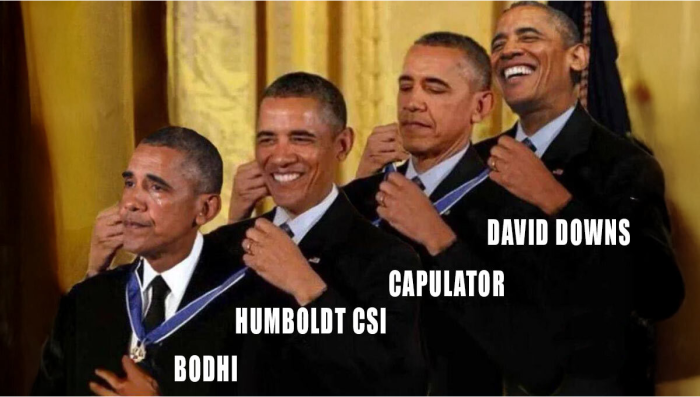







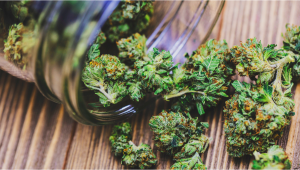

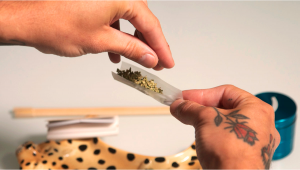

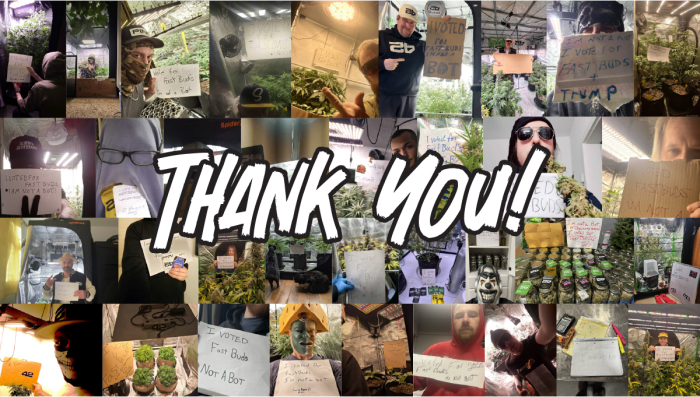

Comments